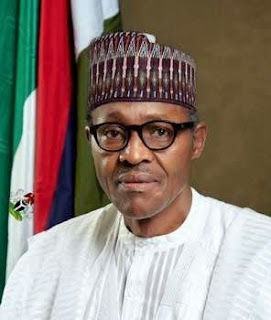Rotational presidency is central to Nigeria’s future By Anthony Akinola
Nigerian politicians are always preoccupied with selfish and regional interests at the expense of our collective good as a nation. Even when our elected politicians have hardly provided a pointer to how they would justify their individual and collective mandates, their preoccupations have been about what would come their ways in the distant future. Specifically, their noises have been about where the presidency would be coming from in 2023. Incidentally, the status of the current presidency has yet to be determined by the Supreme Court.
Of course, any student of politics would know that ethnic groups are in perpetual conflict, rivalry or competition with one another. Preoccupation with the destination of the presidency in 2023 and beyond will always be informed by this understanding. There have been calls for the presidency to revert to the South in 2023 – a very legitimate call in every respect. However, any suggestion to the contrary cannot but provoke intervention from anyone with interest in the history and future of Nigeria.
That we have continued to have a relatively stable democratic practice from 1999 to date can be attributed to the fact that the presidency has been alternating between the South and the North in the current dispensation, with two presidents coming from each of the regions. The relative cordial relationship between contemporary politicians of the competing regions has been a distant call from the earlier eras, dominated by military politics, when the fear of regional hegemony had tended to pit one region against the other. The major crises experienced in the past, the Civil War of 1967-1970 inclusive, were products of perceived or real hegemony.
The zoning of the presidency between the North and the South, informal though it has been, accounts for the stability of contemporary Nigerian politics. Any attempt therefore to jettison this arrangement, as being suggested by Governor Nasir el-Rufai of Kaduna State will revert our nation to the pre-1999 politics of acrimonious regional relationships. It will be an understatement to say that the very future of Nigeria depends on how fair the federating units believe the system is to them.
In my honest view, the principle of rotational presidency should now be a subject of serious debate in our National Assembly. To the credit of Nigerians, the importance of this principle had been acknowledged and upheld in past constitutional fora, the 2014 constitutional debate sponsored by the administration of Goodluck Jonathan being the most recent in this respect.
Should the issue of rotational presidency be visited by the National Assembly, the suggestion from this end is that such an idea would deserve to be given a berth in the constitution. The tenure of the President cannot be anything other than a single term, not least because of the illogicality of re-electing one under such an arrangement. Moreover, a single-term presidency will reduce the natural impatience of politicians with aspirations for upward mobility in politics – the type of impatience that may have informed the call by el-Rufai for zoning to be jettisoned.
There is merit in the suggestion for the Swiss-model of collective presidency being advocated by some concerned Nigerians. Under such a system, the position of president of the collegiate rotates annually between members. The reason I am not an enthusiast of this arrangement, as far as Nigeria is concerned, is because of my belief that the world should be able to put a face to whoever the leader of our nation is at a given time. Nigeria, even in its current state of poverty, is a global actor whose leadership cannot, and must not, be masqueraded.
Anthony Akinola is the author of Rotational Presidency


Comments
Post a Comment